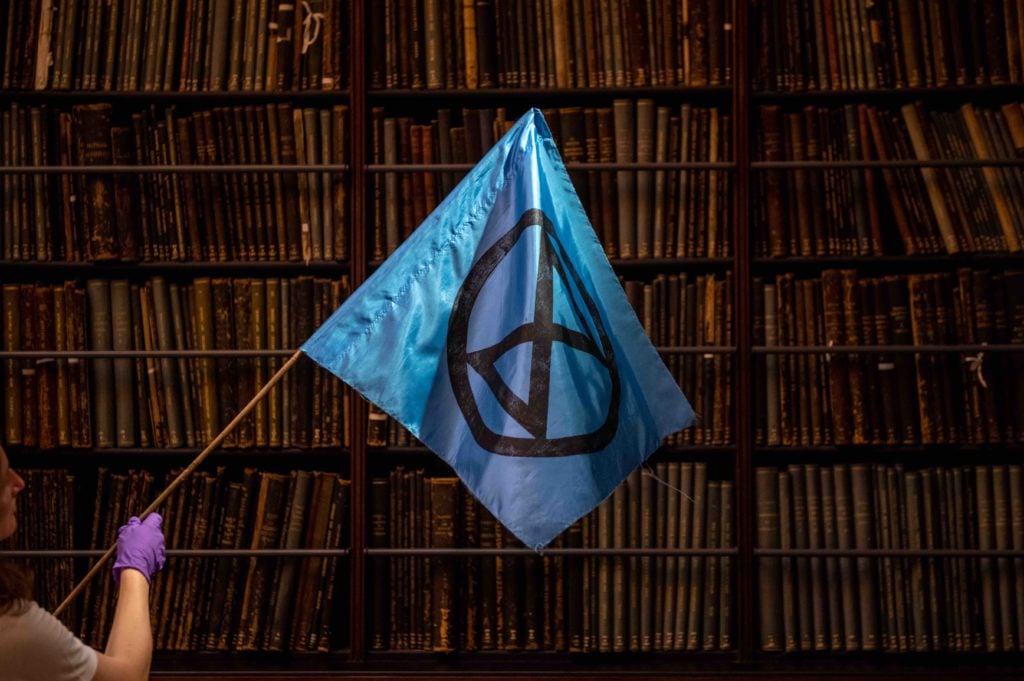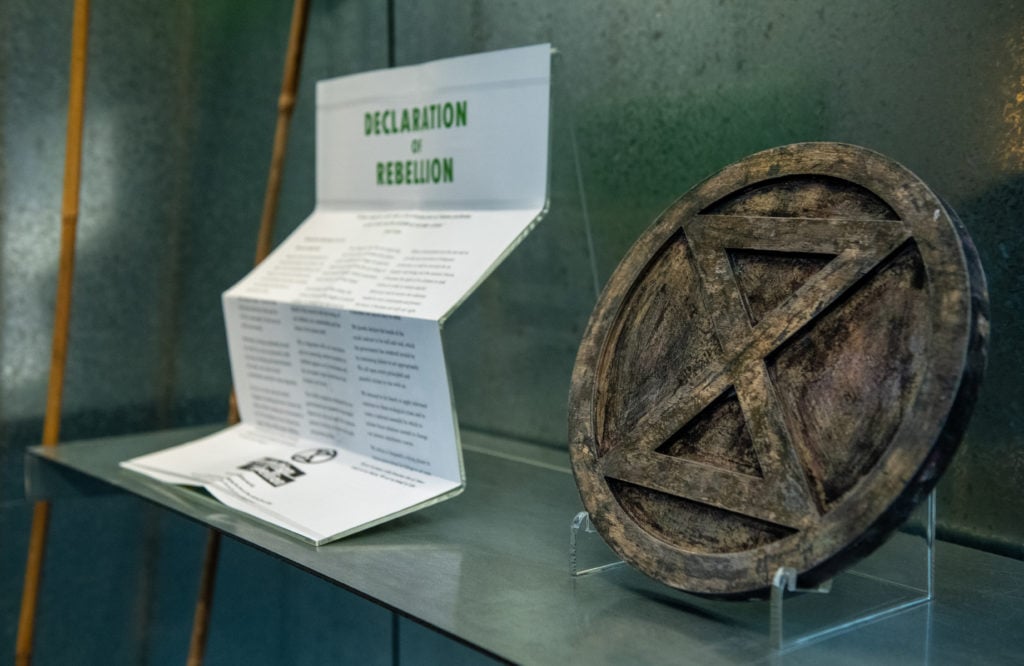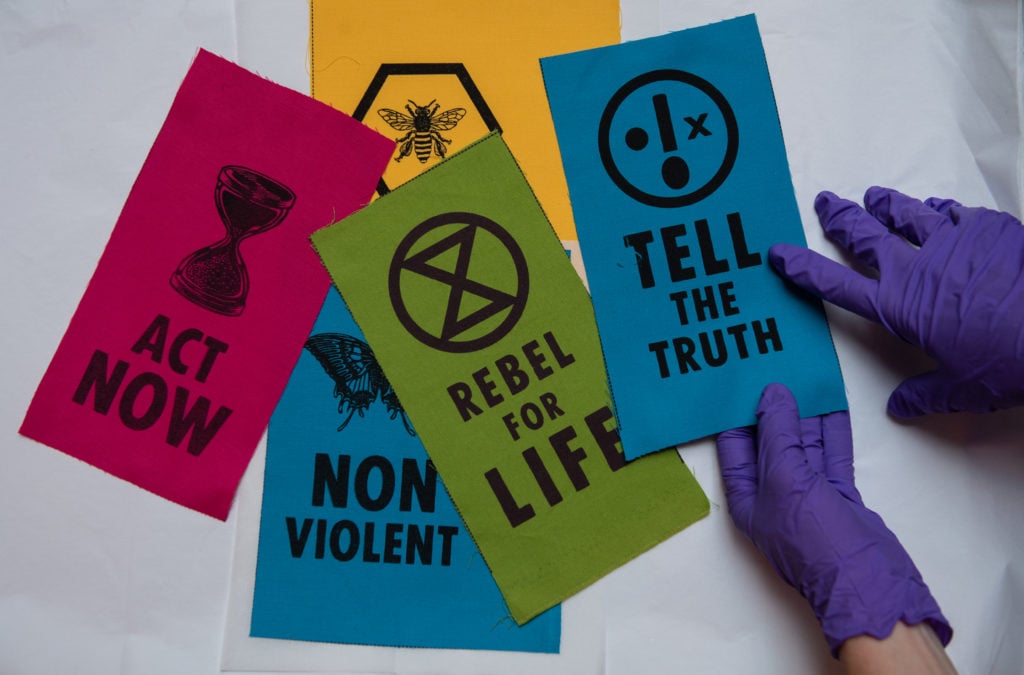On View
The V&A Has Acquired Signs, Fonts, and Symbols Developed by the Climate-Change Activist Group Extinction Rebellion
Curators at the London museum connect the group’s distinctive visual identity to strategies employed by the Suffragettes.

Curators at the London museum connect the group’s distinctive visual identity to strategies employed by the Suffragettes.

Naomi Rea

A bold hourglass symbol signaling that time is running out for the planet efficiently communicates the mission of the climate change activist group Extinction Rebellion, which has staged mass protests across the globe over the past eight months. Now, the group’s unique iconography has earned it a place in a museum collection: the Victoria & Albert Museum in London recently acquired a series of objects communicating its unique design aesthetic.
“Design has been key to Extinction Rebellion’s demands for urgent action on climate change,” the museum’s senior curator of design and digital, Corinna Gardner, said in a statement.
The artifacts were collected as part of the museum’s “rapid response collecting” initiative, which documents and displays designs addressing landmark contemporary events. The collection, which started in 2014, now comprises more than 30 objects, including a protest umbrella from Hong Kong’s 2014 Umbrella Movement.

New Extinction Rebellion acquisitions go on display at the V&A. Photo by Chris J Ratcliffe/Getty Images for The V&A.
Extinction Rebellion’s logo was originally designed by the street artist ESP in 2011. The symbol was adopted (with permission) by the movement, which also goes by the shorthand XR, in 2018. The objects to join the V&A’s collection include flags emblazoned with the symbol carried at mass demonstrations; a rare original example of the official declaration that was released alongside the group’s first action in London; and open-source materials the group has made available to download online.
By making the brightly colored prints and punchy slogans widely available for download, Gardner says the movement has been able to empower people to get involved on their own while ensuring a consistent visual identity and message for the global movement. Gardner likens the design approach to that of the Suffragettes, who encouraged supporters to wear purple, green, and white to communicate their cause.

New Extinction Rebellion acquisitions go on display at the V&A. Photo by Chris J Ratcliffe/Getty Images for The V&A.
Extinction Rebellion has been staging nonviolent public actions in cities around the world since October 31 last year, when more than 1,500 people assembled in London’s Parliament Square to announce a Declaration of Rebellion against the UK government, calling for urgent action on climate change. Their demands prompted the government to declare a “climate and ecological emergency” on May 1 and commit to reducing emissions to net zero by 2025. XR now has more than 363 active groups in 59 countries, including Spain and South Africa.
The activist organization also has its own arts group that oversees its strategic designs. Unifying visual elements include the Extinction Symbol, the XR logotype, a 12-tone color palette influenced by pop artist Eduardo Paolozzi, and two custom two fonts, “FUCXED” and “Crimson.”

New Extinction Rebellion acquisitions go on display at the V&A. Photo by Chris J Ratcliffe/Getty Images for The V&A.
The Extinction Rebellion Arts Group is pleased that the V&A is showing their work for free. “The Climate and Ecological emergency is THE issue of our time and art and design is crucial to our non-violent actions and communication,” said Clive Russell, a representative for the group, in a statement. “We call on all artists and designers to think beyond the bullying constraints of commercial drudgery and join us in rebellion.”